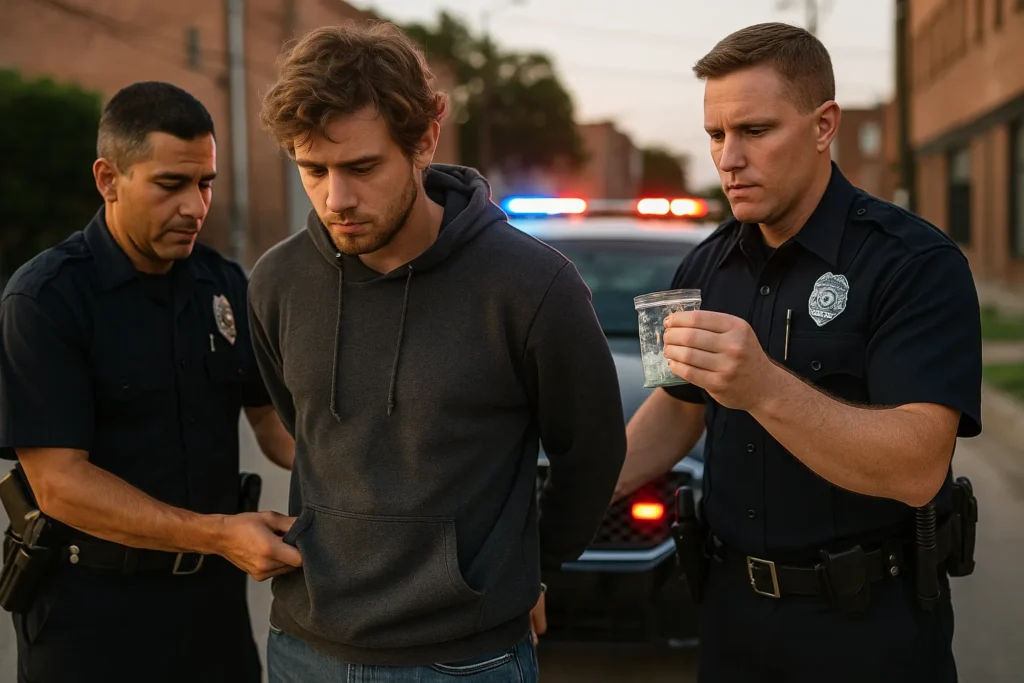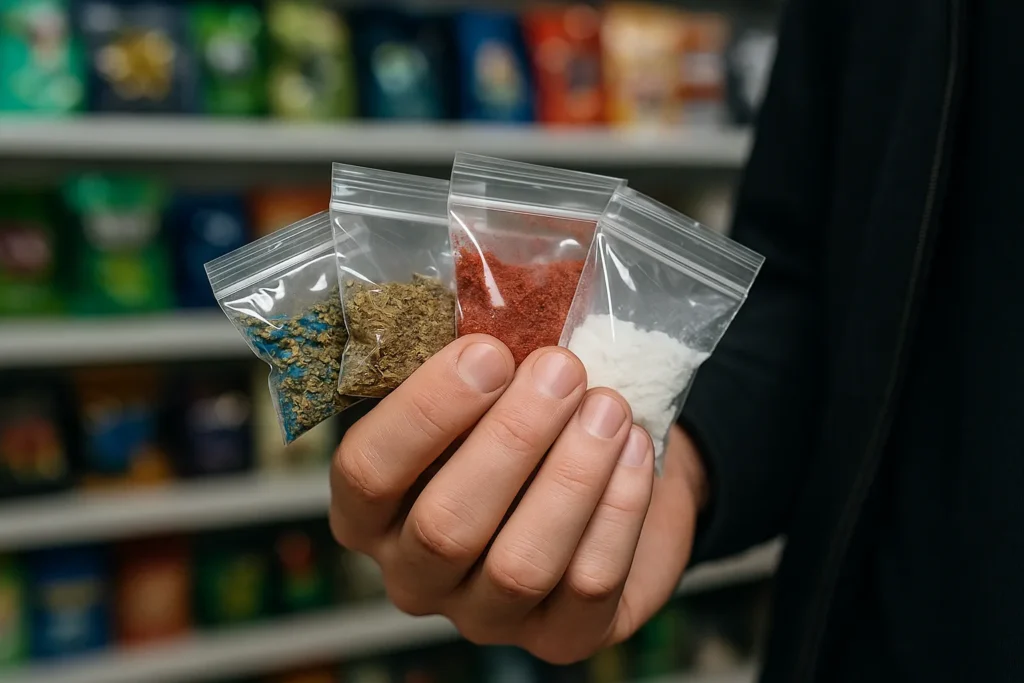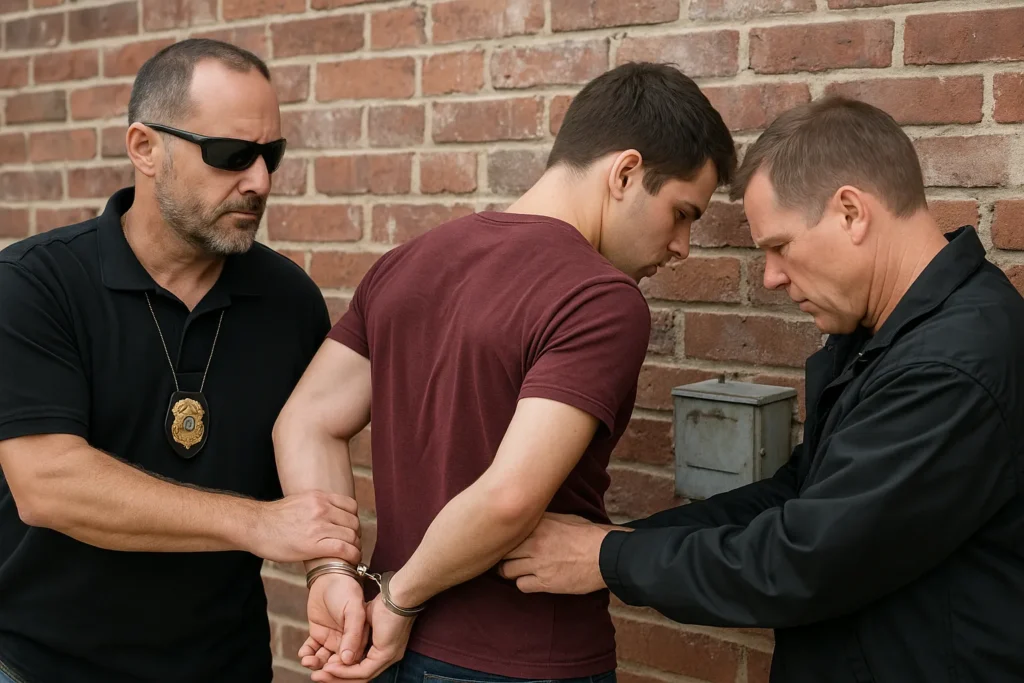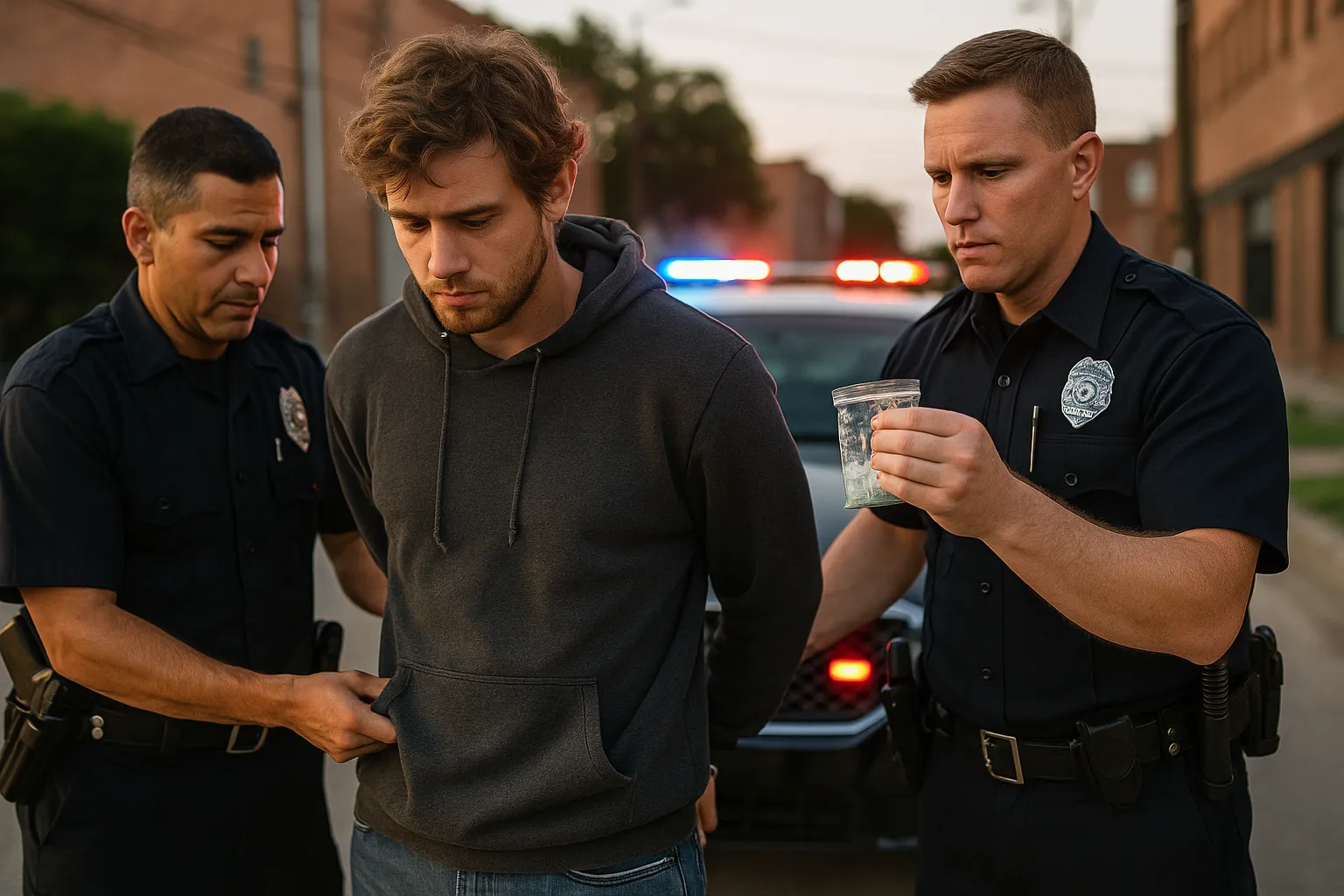
Synthetic drugs in Texas remain a growing concern for lawmakers, courts, and families alike. These lab-created substances are designed to imitate the effects of illegal drugs, but their constantly changing formulas make them unpredictable and dangerous. Many users don’t realize how severe the legal consequences can be until they’re facing arrest. Texas law often treats synthetic drugs as harshly—or even more severely—than traditional narcotics. Understanding how the state prosecutes these cases is essential to grasping the serious risks tied to possession, sale, or even unintentional exposure to these substances.
Why Texas Takes Synthetic Drugs Seriously
The unpredictable effects of synthetic drugs make them especially dangerous. Users have experienced extreme aggression, hallucinations, seizures, paranoia, and heart problems. Some have died after a single dose. Emergency rooms across Texas report a steady stream of synthetic drug-related cases.
The state treats these drugs with the same legal weight as more familiar controlled substances. Lawmakers continue to expand statutes as chemists create new versions to replace banned compounds. Once authorities identify a new synthetic formula, they move fast to classify and restrict it under Texas Health and Safety Code.
Texas Laws on Synthetic Drugs
Texas law classifies most synthetic drugs under Penalty Group 2-A. This group includes synthetic cannabinoids and other lab-made compounds that affect the central nervous system. Holding, producing, or distributing these lab-made substances can lead to significant legal trouble.
Possession-Related Penalties
Having under 2 ounces of synthetic drugs may result in a Class B misdemeanor. This level of offense may bring:
- Up to 180 days in jail
- A $2,000 fine
- A permanent criminal record
As the amount increases, so do the penalties. Larger quantities can raise the charge to a felony.
- 4 ounces to 5 pounds: State jail felony
- 5 to 50 pounds: Second-degree felony
- Over 400 grams: First-degree felony, with up to life in prison and a fine of up to $50,000
Manufacturing or Delivery
Selling synthetic drugs or even giving them away qualifies as delivery under Texas law. Delivery charges are usually more severe than possession. These can range from a state jail felony to a first-degree felony depending on the quantity.
What Makes Synthetic Drug Cases Complicated
The ever-changing formulas present a challenge in court. Law enforcement must prove the compound found matches the banned substance. Sometimes labs have trouble identifying new chemical structures, which can lead to delays or dismissals.
Sellers often label these products as incense or novelty items, which makes prosecution harder. Defense attorneys may argue the substance wasn’t intended for consumption, or that the compound was not on the banned list when the arrest occurred.
In these cases, prosecutors rely heavily on lab tests, witness statements, and packaging details to prove criminal intent.

Federal Influence on Texas Drug Law
While Texas enforces its own drug schedules, it often follows federal action. The DEA can issue temporary bans on synthetic compounds it views as a public threat. Once federal authorities classify a substance, Texas lawmakers usually move to add it to the state’s penalty groups.
Texas has also adopted “analog” laws. These laws ban substances that are chemically similar to already-illegal drugs. This gives prosecutors more flexibility when charging someone caught with a slightly altered version of a known synthetic compound.
Impact on Youth and Schools
Synthetic drugs are cheap, easy to get, and often sold near schools or gas stations. Teens may view them as legal or safer alternatives to marijuana or ecstasy. In reality, synthetic drugs often produce stronger and more harmful effects.
Texas schools apply zero-tolerance policies when students are caught with synthetic drugs. Students face expulsion, criminal charges, and permanent academic consequences. Some districts work with law enforcement to run prevention programs, but once a student faces arrest, the case usually enters the juvenile or adult court system.
Common Defenses in Synthetic Drug Cases
Defense lawyers in Texas use several approaches to fight synthetic drug charges:
The Substance Was Not Illegal at the Time
If the compound didn’t match any banned formula when the arrest occurred, the court may dismiss the case.
Lack of Knowledge
If the person charged did not know they possessed a banned substance, they may argue lack of intent. This applies if someone gave them the product without explanation or switched packaging.
Lab Testing Errors
Defense teams may challenge the validity of lab results, pointing to faulty equipment, contamination, or improper handling.
Improper Search and Seizure
If police did not follow correct procedures during the arrest or search, the defense may move to suppress the evidence.

Collateral Consequences of a Synthetic Drug Conviction
A conviction for synthetic drug possession or delivery affects more than jail time or fines. It can also result in:
- Loss of scholarships
- Suspension or expulsion from school
- Denial of federal student aid
- Trouble securing housing or employment
- Immigration consequences for non-citizens
Even a misdemeanor conviction can leave a permanent mark on a criminal record. Felony convictions lead to longer-term restrictions on voting, gun rights, and job licensing.
Record Sealing and Expungement
Some first-time offenders may qualify for deferred adjudication. If they complete probation and meet all court conditions, they may later petition to seal their record.
Expungement, which removes the charge entirely, is more limited. Only dismissals, acquittals, and certain juvenile cases may qualify. Legal guidance helps determine if you can apply for sealing or expungement after a synthetic drug charge.
What to Do If Charged
Synthetic drug laws change often. Acting fast gives you a better chance at avoiding the worst outcomes. If charged, you should:
- Remain silent and request legal counsel
- Avoid discussing the case with friends or online
- Gather evidence, such as receipts or product labels
- Request independent lab testing if possible
- Show compliance with court dates and release terms
A strong defense depends on early action and accurate information. Even if the product seems harmless, possession of synthetic drugs can bring the same penalties as cocaine or meth.
Final Thoughts
Synthetic drugs in Texas are no small matter. Even possessing a small amount can lead to serious penalties, including jail time, hefty fines, and long-term consequences. What makes these substances even more dangerous is their ever-changing chemical makeup, which often leaves users—and even first-time offenders—unaware of exactly what they’re dealing with. This confusion can turn a bad situation worse in seconds. Understanding the legal framework surrounding synthetic drugs in Texas is crucial for making informed decisions, especially during an arrest. If you’re facing charges, getting legal help quickly can make a significant difference in protecting your rights and your future.

Other Related Articles:
- Texas’ Response to Designer Drugs: Laws and Enforcement
- The Startling Death Of Liam And The Volatile Nature Of Drugs
- An Odd Finding Of Missing Drugs Leads To Nurse Stealing Them
- CPS Drug Testing in Texas: First Visits Unveiled!
- The Significance of CPS Drug Test Results
- Types of Drug Tests Used by CPS in Texas
- Understanding CPS Drug Testing Laws in Texas: A Comprehensive Guide
- CPS Drug Testing at Home in Texas: Legal Procedures and Implications
- Failing a CPS Drug Test for Marijuana in Texas
- What to Do When CPS Asks for a Drug Test in Texas
FAQs
In Texas, when you get served with divorce papers, it officially initiates the divorce process. You’ll have a specific timeframe to respond to the petition, and the court proceedings will begin.
Divorce papers in Texas are typically served by a process server or a sheriff’s deputy. They will deliver the papers to you personally, ensuring that you receive them officially.
After the spouse is served with divorce papers, they have a specific period to respond. If they fail to respond within the given time, the court may proceed with the divorce in their absence.



